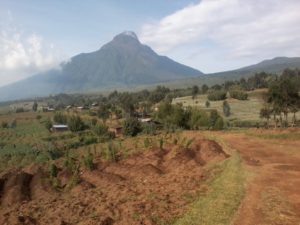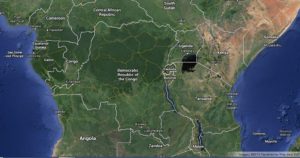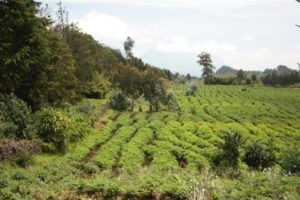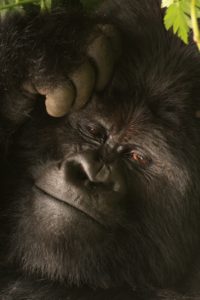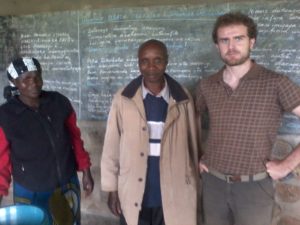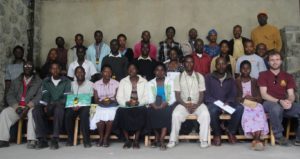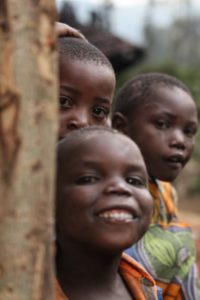Profile
Shane Mc Guinness
Wow, thanks a million guys! Honoured to have taken part. The future of science is in very good hands with you guys!
My CV
-
Education:
St. Mary’s BNS, Rathfarnham, Dublin (1992-1998). Coláiste Éanna CBS, Rathfarnham, Dublin (1998-2004). Trinity College Dublin (2004-2009)
-
Qualifications:
BA (mod) Natural Science – Zoology. MSc. Biodiversity and Conservation
-
Work History:
Trinity College Dublin, London Zoo (The Zoological Society of London), National University of Rwanda
-
Current Job:
PhD candidate, in the School of Natural Sciences
-
Read more
Where do I start…!
So, around the world endangered species (like Mountain Gorillas, Giant Pandas, Blue Whales) are coming into greater contact with human beings in the way we live, work and play. This is for several important reasons, but overall we want to use to same resources, like water, food and a space to live. This means that some of the most endangered places on the planet are also some of the most heavily populated by humans, because we need most of the same resources. It is kind of hard to tell in Europe or North America, as most of the species that used to live here have been removed long ago, in place of intensive agriculture and “anthropogenic” habitats (those areas created by humans and still heavily influenced by them). In tropical areas near the equator, areas not really affected by human still exist. Unfortunately, this also means that some of the poorest people on our planet are sharing the resources of these protected species.
My research looks at how these remaining endangered species of plants and animals of tropical areas come into contact with poor farmers. These are subsistence farmers, meaning they must grow the food that they need to survive. And with the large mammals species that I research (buffalo, gorillas, golden monkeys….) most of the food we eat, they eat too! Because these farmers must grow the crops so close to the rainforest, it is much easier for these animals to come out of their protected area (like a National Parks) and eat the crops of these poor farmers, than it is to stay in the forest and eat low-nutrient leaves, grass, fruit and bark. If I were a gorilla (ignoring the very hairy profiler…!) I’d much prefer some tasty fruit in farmer’s field than leaves and thistles (yep, gorillas eat thistle leaves!). But nobody has the right to tell these people to move away from the forests; they’re human too, just like us and have the right to live the way we do and have as many children as we have. It’s a tricky question, as I’ve discovered!
To try and find an answer to this, I spent over a year in a small country in central Africa with a very high population density and some very endangered species. This country, Rwanda, has been badly affected by its high population and resource pressure, which have led to wars and genocides in the past and are still causing problems in the country’s protected areas.
One of these, Volcanoes National Park (ever seen ‘Gorilla’s in the Mist’?- that’s it.) is home to the critically endangered Mountain Gorilla and the endangered Golden Monkey. But living on its edge are 1,000 people per square kilometre. That’s urban density but everybody is a subsistence farmer! Imagine people in Dublin city all trying to grow their own crops, without the problem of gorillas, buffalos and golden monkeys eating them…!
By talking to these people, and finding out what types of animals damage their crops, I got an idea of how bad the problem actually is. Then, by training them in how to use GPS locators (the exact same system you use on your phone to check-in on Facebook or geo-tag photos) I could tell where animals came out of the park and begin to think about why….
Want to know more? Well, you’ll have to ask me a question or come and chat to me! Hopefully you won’t be as bored as this guy….
-
My Typical Day
Though I’m now parked in front of a computer screen writing my PhD, my average day while on fieldwork in Rwanda was very different….
-
Read more
Though my current days are in front of a screen at the business end of a PhD (typing the report of what I did – >80,000 words!) the 12 months I spent in Rwanda were very different. They usually began with an early start (around 6am) and a long motorbike ride up dusty African tracks, to get to the rainforest edge before farmers began working in their fields. I’d then find somewhere to park the bike, find a kind shop-keeper to mind my helmet, and myself and my translator would take off towards the park. After several interviews and a lot of hiking up hilly potato fields (sometimes through torrential rain), the evening was then spent back in the house entering data on the laptop and preparing for the next day. This was usually underneath some of the most spectacular lightning storms I’ve ever seen.
-
What I'd do with the prize money
I would love to use the money to create a Schools’ Visit Programme for all PhD students, to bring science out of Universities and into the classrooms of those who can really make a difference – you guys!
-
My Interview
-
How would you describe yourself in 3 words?
Adventurous, Independent, Motivated
What did you want to be after you left school?
A pharmacist (and boy am I glad I followed science!)
Were you ever in trouble at school?
Yes! Detention for climbing out of a window that probably shouldn’t have been climbed out of… I’ve said too much.
Who is your favourite singer or band?
Arcade Fire or Sigur Ros
What's your favourite food?
Spaghetti Carbonara
What is the most fun thing you've done?
Camped on the side of an active volcano in the Congo
If you had 3 wishes for yourself what would they be? - be honest!
A permanent job I’m truly happy in, unlimited carbon-free flights and a Tesla Roadster.
Tell us a joke.
Apparently the people of Dubai don’t like the Flintstones…. but the people of Abu-Dhabi Dooo!
-

